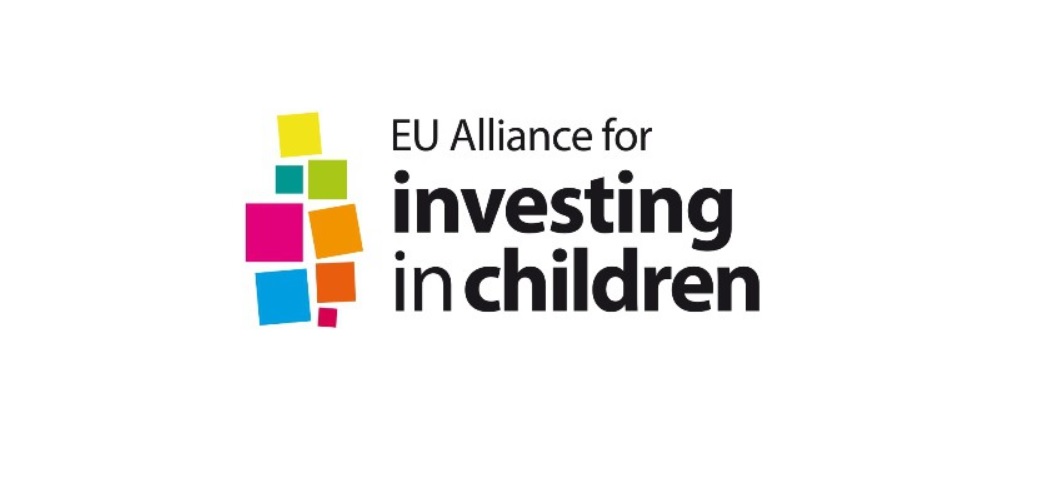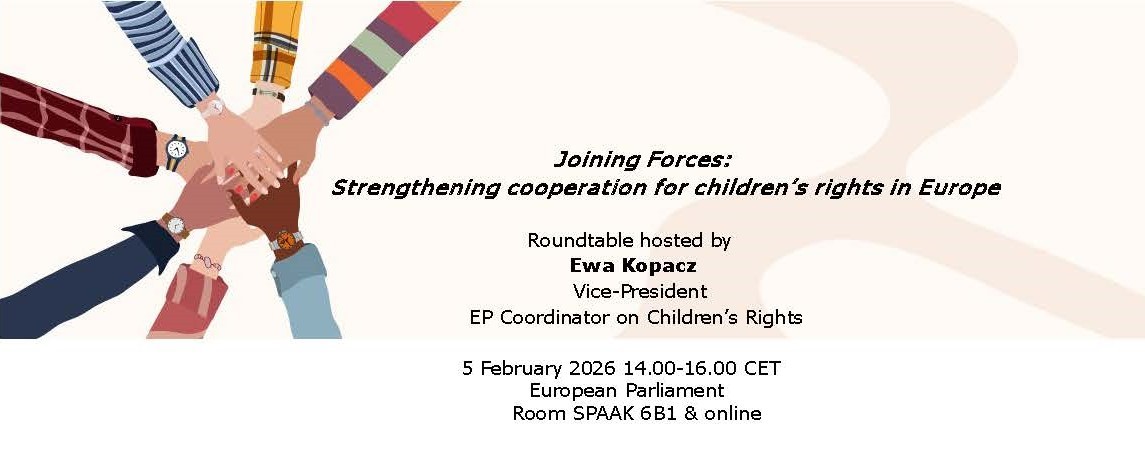A Call to Action for an Investing in Children Council Recommendation
A Call for Action to European Union Member States for an Investing in Children Council Recommendation
Child poverty in the European Union today
In 2019, 1 in 4 children in the European Union are still being failed, despite the EU being one of the most prosperous regions in the world.
Child poverty and social exclusion can have lifelong effects in children’s lives, leading to poverty in adulthood. Children who grow up in poverty often have fewer opportunities than their peers to access quality education starting from early childhood education until higher education, and are more likely to experience social exclusion and health problems in the future. They are also less likely to reach their full potential later in life.
In 2013, as part of the Social Investment Package, the European Commission launched the European Recommendation on Investing in Children; Breaking the Cycle of Disadvantage. The 2013 Recommendation was developed to support Member States in taking a comprehensive approach when developing policies for child poverty reduction by ensuring parent’s access to adequate resources, access to affordable quality services, and by supporting children’s participation in decision making.
However, the Investing in Children Recommendation did not have the expected impact on policy reform in the Member States. Still, 23,7 million children today face the daily hardship of growing up in poverty.
The role of the EU as a champion
The 2021-2027 EU funding period offers a significant opportunity to ensure that EU investments are directed to tackle child poverty and social exclusion across EU Member States. The European Parliament has already championed the development of the Child Guarantee by introducing 5,9 billion EUR in the proposal for the ESF+.
The next European Commission and Ms Von der Leyen’s commitment for the development of a European Child Guarantee as a flagship policy of her Commission offer a momentous occasion to tackle persistent levels of child poverty in Member States and bring positive change for Europe’s most vulnerable children.
The Alliance for Investing in Children welcomes the European Commission’s and European Parliament’s initiatives, notably, the commitment of Commissioner-Designate for Jobs, Mr Nicolas Schmit, to lead on the development of the Child Guarantee and Vice President designate for Democracy and Demography, Ms Dubravka Suica, to coordinate the Child Guarantee.
However, more needs to be done if we want to see systemic and sustainable reforms for tackling child poverty at national level. EU funding alone is not enough – EU Member States need to commit to put an end to child poverty and social exclusion.
Therefore, we bring the following recommendations to EU Institutions and EU Member States urgent attention:
KEY ASKS TO EU AND NATIONAL DECISION MAKERS
1. We are calling for an EU Commitment in the form of a Council Recommendation on Investing in Children.
The EU needs to update and upgrade its policy framework to guide Member States in their efforts to ensure children who grow up in inclusive and prosperous societies where no one is left behind.
An Investing in Children Council Recommendation will secure national ownership and accountability. It will ensure that EU and national investments, including the Child Guarantee are aligned with national plans that will reflect the principles of the Recommendation and will ensure an integrated response and strategic and sustainable investments.
One of the novelties of the 2013 Recommendation on Investing in Children was the integrated approach it took for tackling child poverty and social exclusion. This integrated approach should be preserved and reinforced.
With an Investing in Children Council Recommendation, we ask EU Member States to make up for previous failures to implement the integrated approach of the previous years to reduce child poverty across the EU.
2. We are calling EU Member States to develop child poverty reduction plans to realise the Investing in Children Council Recommendation.
EU Member States should define the universal policy measures they have/aim to put in place; as well as the targeted measures to take to prevent and tackle child poverty, at national, regional and local levels.
The national child poverty reduction plans should follow the integrated approach of the Investing in Children Recommendation, ensuring that parents have access to quality employment and child/family benefits, that all children have access to free health care, free education, free childcare, decent housing, and adequate nutrition, irrespective of their residence status, and that children meaningfully participate in the decisions made for their lives.
These plans should include a list and timeline of actions that are to be supported by national budgets and EU funding instruments, including the Child Guarantee.
The plans should form part of the national strategic policy framework on poverty reduction and social inclusion, developed by EU Member States to fulfill the enabling condition 4.3 of the Common Provisions Regulation.
The action plans should be developed and submitted to the European Commission before the beginning of the 2021-2027 EU funding period. The national plans should be reviewed regularly.
3. We are calling the EU to monitor the implementation of the Investing in Children Council Recommendation at national level through the European Semester.
In 2014 only seven Country Specific Recommendation (CSRs) specifically addressed child poverty; in 2015 it was two; in 2016 one and in 2017 zero. The European Semester is expected to be strengthened in its role to monitor and recommend EU investment priorities to EU Member States. In this sense, the European Semester cycle should reflect the developments in fighting child poverty and social exclusion in EU Member States. For this, clear indicators need to be included in the updated Investing in Children Recommendation that will then feed into the European Semester process.
4. We are calling for more systematic engagement of civil society at EU and national levels.
Civil society actors are primary interlocutors of children and families in and at risk of poverty. Civil society should be consulted in the designing, implementation, monitoring and evaluation of the national child poverty reduction plans. The European Commission should guide Member States in reaching as many stakeholders as possible as well as enhancing children’s participation. At national level, civil society should be supported to implement projects that will feed into the Investing in Children Council Recommendation.
Children cannot wait. Future generations cannot wait.
We are calling the European Union and its Member States to take the RESPONSIBILITY and ACT NOW to ensure that no child grows up in poverty in the years to come.
• Katerina Nanou, Katerina.nanou@savethechildren.org Senior Advocacy Advisor, Child Poverty and Children in Alterative Care, Save the Children, +32 (0)2 512 78 51
• Réka Tunyogi, reka.tunyogi@eurochild.org Head of Advocacy, Eurochild, +32 (0)2 211 05 54





